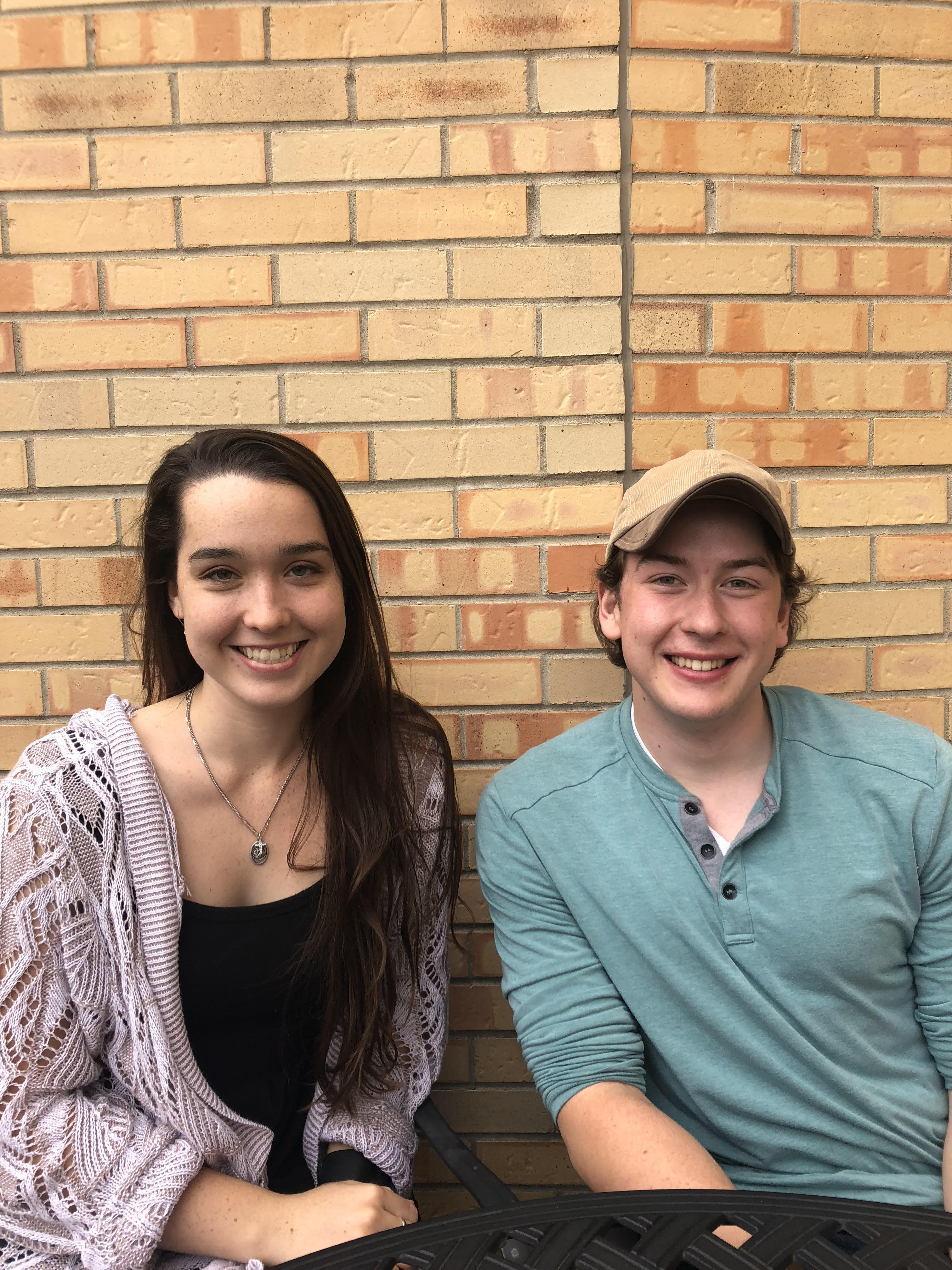
Dr. Laura Niklason, a noted scientist and professor of anesthesiology and biomedical engineering at Yale University, was interviewed by Lillian Quinones ’18 on Quinones’ radio show “Science and Ethics.”
“A synthetic blood vessel that you developed was grafted into the arm of a kidney dialysis patient. The research that produced this result took 20 years and drew upon your experience in a variety of scientific fields. Could you walk us through this project?”
Quinones asked questions such as this to explore different ways in which scientists deal with large ethical questions.
Now, senior Joshua Pautz and sophomore Bryna Destefani continue this legacy.
Beginning in fall of 2017, Quinones began working with junior Sarah Becker as her co-host. Becker had interned at the University of Minnesota’s Center for Bioethics while working as a nurse assistant.
“I found that the two roles overlapped considerably,” Becker said in an email. “Everything I did, saw, and experienced in a healthcare setting had profound ethical implications.”
After hearing of her interest in bioethics, Assistant Professor of History Matthew Gaetano helped introduce her to Quinones and her show. The two worked on the show together.
With two new hosts, the show embraces a slightly different trajectory.
“In the past, bioethics happened to be the content of a lot of the episodes because Lillian was a biochemistry major,” Pautz said. “Bryna is doing psychology, I’m doing mathematics, and so we’re hoping to delve into those issues this year.”
Pautz and Destefani are answering a new question with the show—are there really ethical questions in mathematics?
“Surprisingly enough, there are,” Pautz said. “One episode we’re hoping to do is algorithmic injustice.”
In the criminal justice system, he explained, courts use algorithms to help with sentencing. Judges are able to look at how previous criminals with similar backgrounds have acted.
Pautz explained that a judge might look at the records to decide what the chances are that someone might commit another crime or break parole. That can be useful, he said, but it can also be biased. For example, someone shoplifting in the inner city may be flagged much higher than someone shoplifting in a wealthy suburban area.
He explains some of the questions this might raise.
“Should that be allowed in the judicial system since it is strictly mathematics-based? It’s only a probability, so does that bias our judges towards a particular decision? Or is it only a useful tool in helping to make a decision?”
This is only one of many topics the pair plan to cover, according to Destefani. She cites some of the others: de-extinction of lost species through scientific discovery, the ethics of transplants, and the misdiagnosis of ADHD.
According to Pautz, there is a lot involved with running a radio show.
“There’s the skills of finding content, doing the research for these topics, writing up questionnaires, finding individuals in these various professional fields,” he said. “There’s also the skills of being an interviewer, keeping the conversation going, such that your audience who has not done the hours and hours of research can still follow along.”
When produced, the half-hour show will run biweekly. This means they will be able to cover a lot of topics in a wide variety of fields. In fact, Pautz said they’re open to considering many different issues.
“If anyone has an idea for the show, whether a professor or a student, we’d be interested to hear from them,” Pautz said.
The two hope to interview professionals nationwide, as well as give their own commentary on certain subjects.
Students who are interested in listening can tune in to Radio Free Hillsdale 101.7 FM during the broadcast time, which is yet to be decided. Those who are in class can still catch up later by going to Radio Free Hillsdale’s SoundCloud website, where all of the radio station’s programs are available. In addition, Pautz and Destefani plan to upload their show to YouTube about a week after it is aired.
With the first broadcast only about a month away, Pautz and Destefani are looking forward to getting started.
“There’s so many issues and topics,” Destefani says. “That’s really exciting.”
Even though the focus might shift slightly, Pautz and Destefani still have the same goal in mind as Becker and Quinones.
“That was the goal of the show— to bring science and ethics together in order to develop a more complete, more nuanced, and more full picture of the world,” Becker said.

